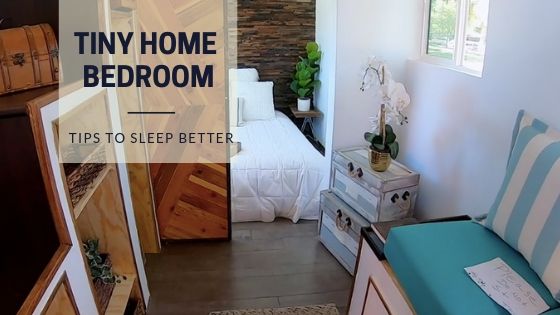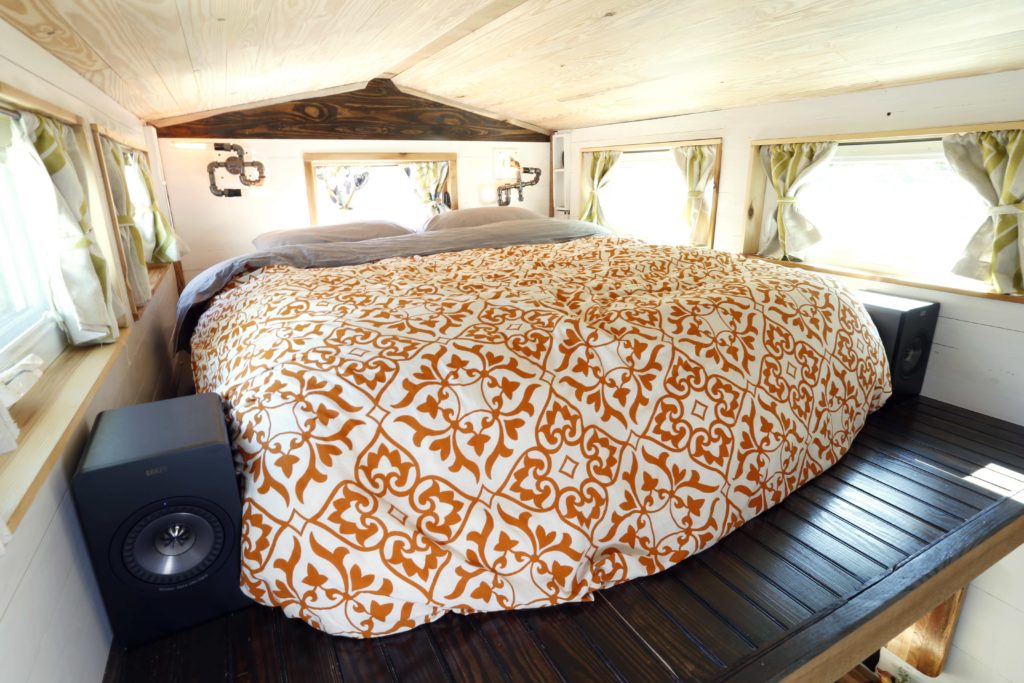
How to Improve Your Tiny Home Bedroom Environment
The layout and set up of your bedroom is important not just for your aesthetic, but for your sleep
A poorly designed bedroom can lead to discomfort or even insomnia. When you’re living in a tiny house, it’s even trickier to remove distractions from the bedroom or sleeping loft. Check out these ways to improve your tiny house bedroom environment.

Remove clutter
When you live in a tiny house, what would typically be a small amount of clutter suddenly becomes a lot. The messier your sleeping area is, the harder it is to ‘turn off’ at the end of the day. Studies show that people with messier rooms have trouble falling asleep and are at risk for anxiety.
Minimize distractions
Part of the reason many people move to a tiny house is to downsize and let go of too many possessions, but unfortunately, it can mean there’s a lot more happening in the bedroom than before. You might use your bedroom space as a work area or lounge, which can cause problems sleeping. Try to separate the areas, so your bed is only used for sleeping — something like a Murphy bed can really come in handy! Also, make sure to switch off and put away all electronics at night.
Toss your old, lumpy mattress
No matter what type of bed you have, the mattress can make or break your sleep. Older mattresses often lose their shape, leading to an uncomfortable night’s sleep. You might also just have the wrong mattress for you: if you find yourself in pain at night from a too soft or too firm mattress, it’s time to switch. Find one that hits your comfort level, and don’t neglect the bedding! Whether you prefer a single sheet or tons of blankets, having high-quality items ups your comfort level and makes it easier for you to drift off into dreamland.
Turn off the lights
While big windows with lots of natural light might be your favorite part of your home during the day when it’s time to sleep, it’s better to do so in darkness. Your body’s natural circadian rhythm follows a light-dark cycle that means you’re awake when it’s light out, and sleep when it’s dark. Even if you work nights, it’s best to keep your bedroom as dark as possible when you sleep. Morning sunlight can keep you awake, so you might want to invest in some blackout curtains.
Check your temperature
If your bedroom is too hot or too cold, it might be hard to sleep. If you find yourself waking up in the night drenched with sweat or shivering in the cold, you need to adjust immediately. Extra blankets or space heaters can help increase the temperature, while fans can help you cool down. Experts say it’s better to sleep in a slightly cool environment, so if you’re suffering from insomnia, try lowering the temperature of your bedroom gradually and see if it helps.
Peace and quiet
In general, you want your space to be quiet when you’re sleeping. Loud or unusual noises will wake us up, so it’s important to block those out as much as possible. Turn your phone on silent, or try using a with noise machine to drown out the sounds of your environment.
When to get help
If you’ve adjusted your bedroom environment as much as possible and are still having trouble sleeping, you might want to explore other alternatives. One of the reasons why you should consider a sleep coach is to have an expert assess your situation and help you meet your sleep goals. If you feel like your insomnia is related to a medical issue like depression or anxiety, consult your doctor.
